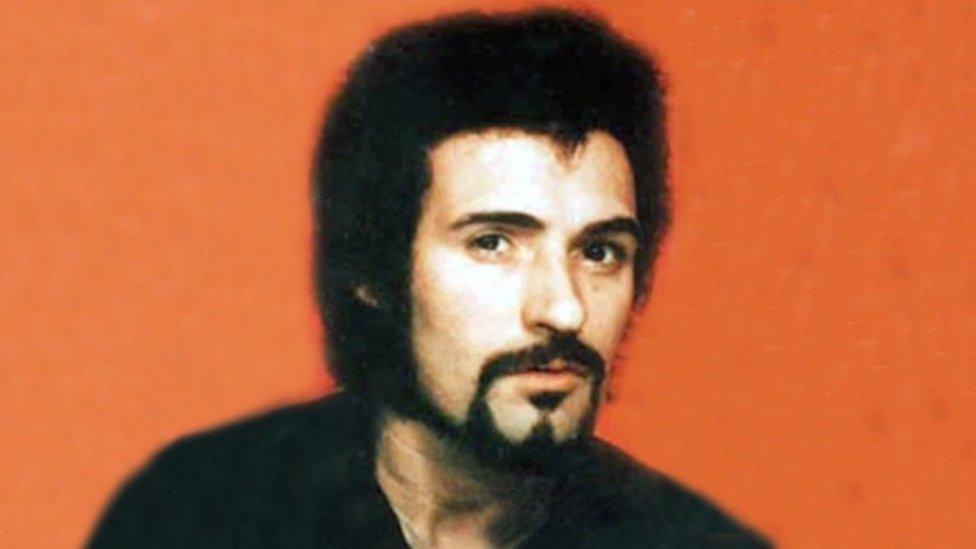Peter Sutcliffe: Prison report examines death of killer
- Published
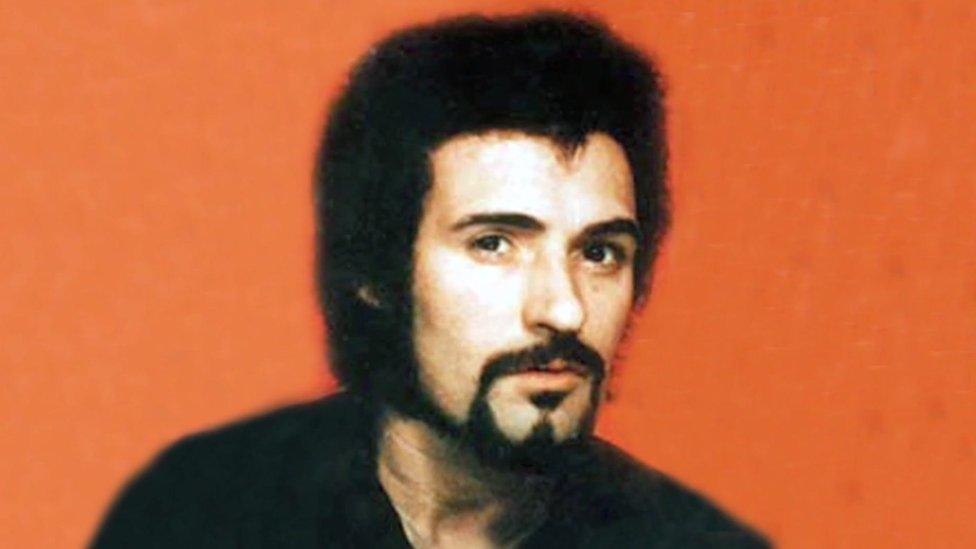
Sutcliffe suffered from numerous long-term health problems prior to his death in November 2020
An independent report into the death of serial killer Peter Sutcliffe has concluded he caught Covid-19 in hospital rather than in prison.
Sutcliffe was serving a whole-life term for murdering 13 women across Yorkshire and north-west England between 1975 and 1980.
He died with Covid on 13 November 2020 at University Hospital of North Durham.
The Prisons and Probation Ombudsman report details his deteriorating condition prior to his death.
Sue McAllister, who wrote the report, external, concluded the care Sutcliffe received in prison was equal to what he would have received in the community.
However, she expressed concern about the time it took for Sutcliffe, who changed his name to Peter Coonan during his imprisonment, to be returned to prison after one of his frequent hospital trips.
She also criticised the time it took to remove Sutcliffe's restraints when he was seriously unwell in hospital.
"The Prison Service has a duty to protect the public when escorting prisoners outside prison, such as to hospital. It also has a responsibility to balance this by treating prisoners with humanity," she wrote.
It took four hours for officers to gain permission to remove Sutcliffe's restraints on 12 November, once it became clear he was dying. Even after permission was granted it was more than an hour before they were finally taken off.
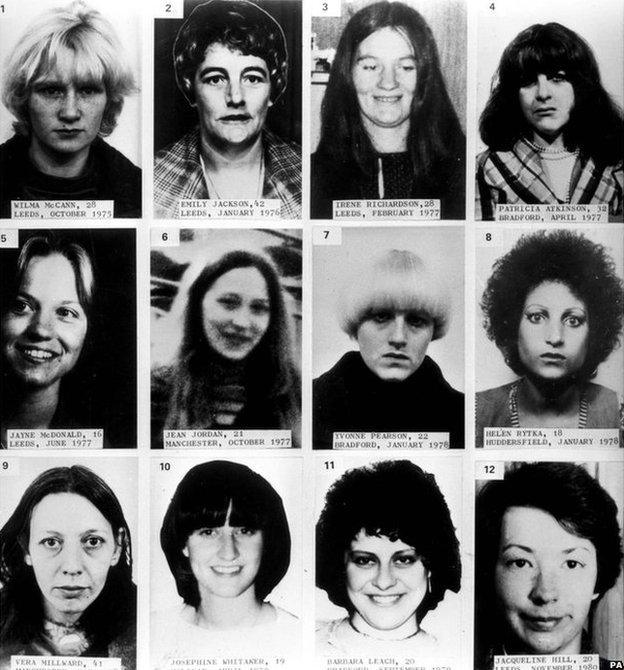
Twelve of the 13 women Sutcliffe was convicted of murdering in West Yorkshire and Greater Manchester (Marguerite Walls not pictured)
Sutcliffe, a former lorry driver from Bradford, was also found guilty of the attempted murder of seven women when he was convicted in 1981.
He spent three decades at Broadmoor Hospital before being moved to HMP Frankland in County Durham in 2016.
The report highlights his numerous health conditions, which included heart problems and type 2 diabetes. He also suffered from paranoid schizophrenia.
His condition began to deteriorate after he told a prison nurse he felt "unwell and very dizzy" on 27 October, the report states.
Sutcliffe went to hospital to have a pacemaker fitted the following day and while there was tested twice for Covid.
He was tested again on his return to prison on 4 November and was found to be positive.
"It therefore appears that Mr Coonan contracted Covid-19 in hospital," Ms McAllister recorded.
Sutcliffe had declined to shield when offered the opportunity by prison staff in April 2020, according to the report.
His condition continued to decline, with prison staff noting he was coughing continuously and vomiting.
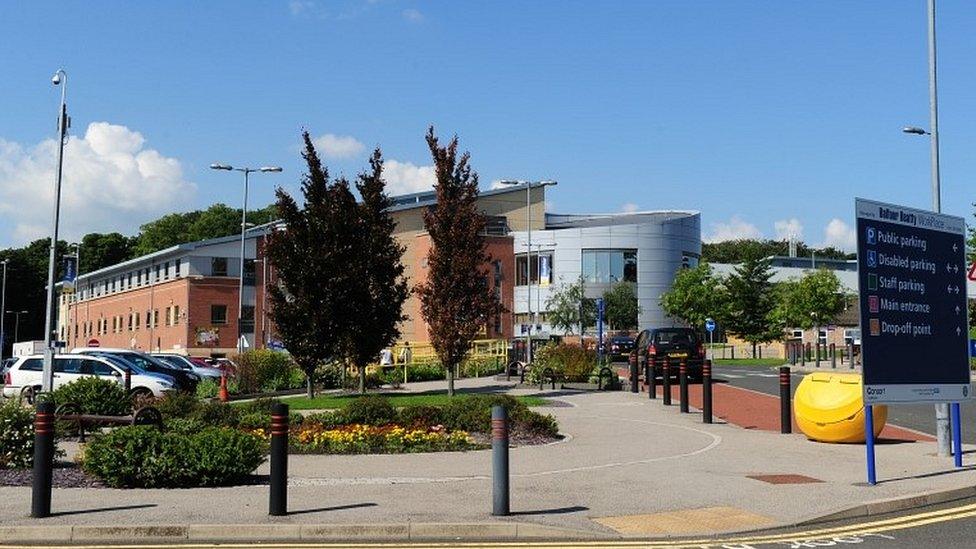
Sutcliffe died at the University Hospital of North Durham in November 2020
Sutcliffe spent two further short periods in hospital on 8 and 9 November due to concerns about his low oxygen saturation rate.
On 10 November the prison GP spoke with the hospital consultant about Sutcliffe's condition and it was agreed he should return to hospital.
He continued to deteriorate and he died at 01:45 GMT on 13 November.
Ms McAllister's report said she was satisfied that prison staff had contacted Sutcliffe's next of kin about his health and when it was clear that he was dying.
However, she said it was disappointing staff had to deliver personal messages between him and his family rather than allowing him to speak with them.
She recommended the prison governor should ensure staff consider whether seriously or terminally-ill prisoners in hospital should be able to have direct contact with loved ones via a phone or computer.
An earlier inquest found Sutcliffe died of natural causes.

Follow BBC Yorkshire on Facebook, external, Twitter, external and Instagram, external. Send your story ideas to yorkslincs.news@bbc.co.uk, external.
- Published22 September 2021
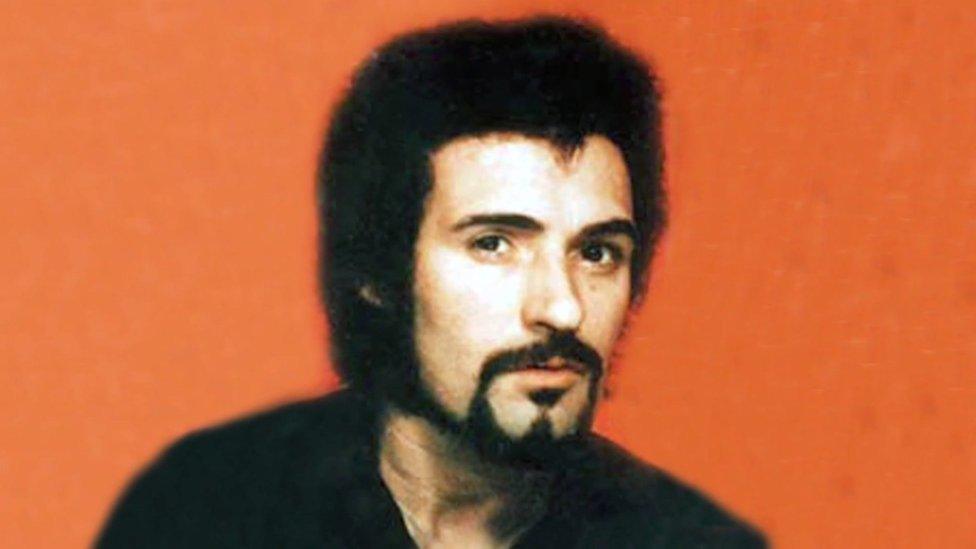
- Published13 November 2020
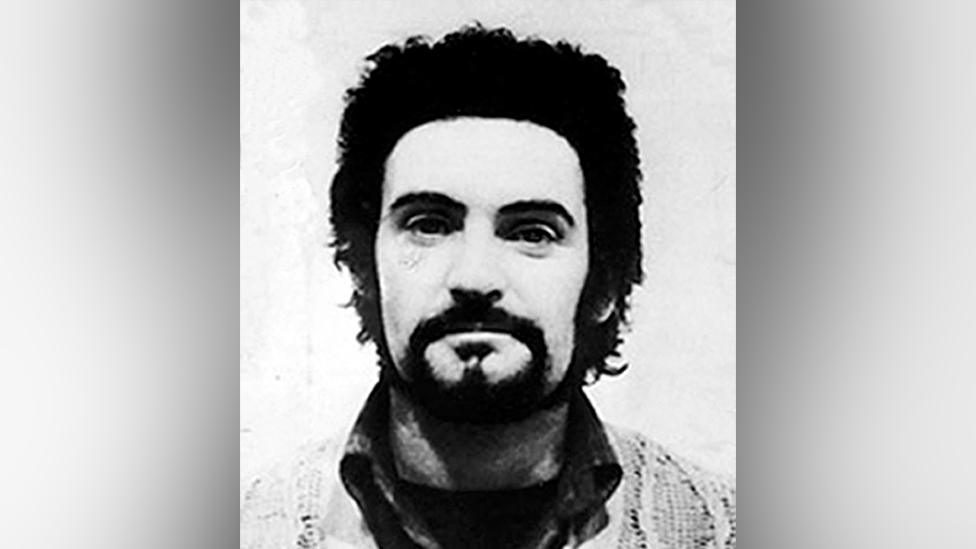
- Published12 February 2018
